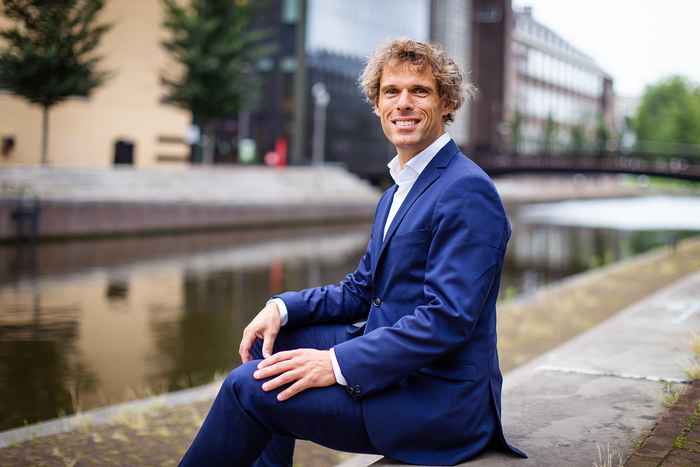How can we share the ‘tax cake’ fairly?
Daniël Smit named professor by special appointment of the Taxation of the Digital Economy
18 October 2021

Who doesn't order products or services online? More and more companies, offices, shops and factories offer their products and services via the Internet. And that means that tax revenue is also disappearing for those countries where these companies used to be located.
This is Daniël Smit, as of 1 September professor by special appointment of the Taxation of the Digital Economy at the Amsterdam Centre for Tax Law (ACTL). With this appointment, he becomes one of the academic leaders of the UvA research project Designing the tax system for a Cashless, Platform-based and Technology-driven society (a CPT project). In addition to his academic work, Daniël is head of the technical department at EY.
The winner takes it all
'The current system is strongly based on the old, physical economy in which people worked in offices, shops and factories. And where companies had a visible presence in another country,' says Daniël. 'But now companies are offering their products online more and more. Production chains of companies are becoming shorter. You buy more and more products via a website and have them delivered to your home. Local shops are disappearing.'
The countries where the shops, offices and factories of multinationals used to be located were able to tax part of the profit at the time because the company had a presence there. 'Now that the physical presence of multinationals is disappearing, the tax revenues for those countries are disappearing too,' explains Daniël. 'The countries where those digital companies are located get the whole fiscal pie: the winner takes it all. The digital economy has upset the balance.'
Now that the physical presence of multinationals is disappearing, the tax revenues for those countries are disappearing too
Digital nomads
How to change the system is a very difficult question. 'Factories and shops could be seen, but how do you determine the digital link with a country? There are many ways to do that.' The discussion is extra tricky because countries have opposing interests. 'Some countries have a very large consumer market, others are more on the supply and production side.'
Daniël foresees that as a result of the coronal shockdowns, freelancers and employees will become increasingly mobile. 'A Dutch freelance designer can also work from Greece for 3 months. This in turn raises the question of which country may tax the income of these digital nomads. It could mean that the Netherlands loses tax income while other countries benefit. You already see countries stunting with their tax rules in order to attract freelancers and obtain extra tax revenue.'
Involving developing countries
'The old system was designed by the richer EU and OECD countries and generally worked to their advantage. The head offices were in the rich countries and they got the tax cake. The discussions on reform are therefore mainly between the rich countries. But if we want to restore the balance, you have to involve the developing countries as well. They must also get their fair share.'
This summer, agreement was reached at international level on the review. The OECD will come up with a concrete proposal this autumn. Smit will evaluate the OECD proposal with fellow researchers from the research project Designing the tax system for a Cashless, Platform-based and Technology-driven society. 'I will be looking in particular at whether the system favours the rich countries too much. With this project, we want to provide building blocks to make the tax system fairer, more efficient and harder to circumvent. Paying the fair share in the right place!'